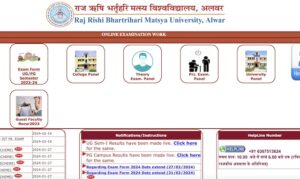Becoming a millionaire is a goal many aspire to achieve, especially in their 20s when the potential for growth and learning is at its peak. While it may seem daunting, with the right strategies, discipline, and mindset, it’s an attainable goal. This article provides a detailed roadmap, grounded in proven financial principles and strategies, to help you achieve millionaire status.
1. Mindset and Goal Setting
– Adopt a Growth Mindset: Believe that your financial situation can improve with effort and learning. A growth mindset encourages you to seek opportunities, learn from failures, and persist through challenges.
– Set Clear Financial Goals: Define what becoming a millionaire means to you. Is it having a million in assets, liquid cash, or investments? Set specific, measurable, achievable, relevant, and time-bound (SMART) goals.
2. Maximizing Income
– Invest in Your Career: Focus on building skills that are in high demand in your industry. Whether it’s technical skills, leadership, or communication, becoming indispensable in your job can lead to promotions and higher salaries.
– Consider Side Hustles: Diversifying your income streams is crucial. Start a side business, freelance, or invest in real estate. The extra income can accelerate your journey to becoming a millionaire.
– Negotiate Salary: Don’t be afraid to negotiate your salary and benefits. Over a career, even a small increase in salary can lead to significant additional income.
3. Living Below Your Means
– Budget Wisely: Track your expenses and create a budget. Allocate funds for necessities, savings, and discretionary spending. Aim to save at least 20% of your income.
– Avoid Lifestyle Inflation: As your income grows, resist the urge to increase your spending proportionately. Instead, increase your savings and investments.
– Focus on Value, Not Cost: Buy quality items that last longer rather than cheap ones that need frequent replacement. This approach can save money in the long run.
4. Investing Wisely
– Start Early: The power of compound interest is your greatest ally. The earlier you start investing, the more time your money has to grow.
– Diversify Your Portfolio: Don’t put all your eggs in one basket. Invest in a mix of stocks, bonds, real estate, and other assets. Diversification reduces risk.
– Learn About Investing: Educate yourself about different investment options. Consider low-cost index funds, which have historically provided solid returns with lower risk.
– Consider Tax-Advantaged Accounts: Maximize contributions to retirement accounts like 401(k)s or IRAs. These accounts offer tax benefits that can boost your savings.
5. Reducing and Managing Debt
– Avoid High-Interest Debt: Credit card debt can be a major obstacle to becoming a millionaire. Pay off high-interest debt as quickly as possible.
– Leverage Good Debt: Not all debt is bad. For instance, taking out a mortgage to buy real estate or a loan to invest in your education can be beneficial if managed wisely.
– Use Debt to Build Wealth: Real estate investors often use mortgages to acquire properties. The rental income and property appreciation can build wealth over time.
6. Saving and Emergency Funds
– Build an Emergency Fund: Aim to save 3-6 months’ worth of living expenses in a liquid, easily accessible account. This fund will protect you in case of job loss or unexpected expenses.
– Automate Your Savings: Set up automatic transfers to your savings and investment accounts. Automating your finances ensures that saving becomes a habit.
7. Continuous Learning and Adaptation
– Stay Informed: The financial world is constantly changing. Keep up with the latest trends, regulations, and investment opportunities.
– Adapt Your Strategy: As you grow older and your financial situation changes, be ready to adjust your strategy. For instance, as you approach retirement, you may want to shift to more conservative investments.
8. Networking and Mentorship
– Build a Strong Network: Surround yourself with like-minded individuals who share your financial goals. Networking can open doors to new opportunities.
– Seek Mentorship: Find a mentor who has achieved financial success. Their experience can provide invaluable guidance and help you avoid common pitfalls.
9. Entrepreneurship and Innovation
– Consider Starting a Business: Many millionaires have created their wealth through entrepreneurship. Identify a gap in the market and create a product or service that meets a need.
– Innovate and Scale: If you already have a business, focus on innovation and scaling your operations. Growing your business can significantly increase your income.
10. Philanthropy and Giving Back
– Give Back: Many successful individuals find fulfillment in giving back to their communities. Philanthropy can also offer tax benefits, reducing your taxable income.
– Incorporate Giving into Your Plan: Consider setting aside a portion of your income or wealth for charitable contributions. This not only benefits others but can also provide a sense of purpose.
Conclusion
Becoming a millionaire is a journey that requires discipline, strategic planning, and continuous learning. By adopting the right mindset, maximizing your income, living below your means, investing wisely, and seeking continuous improvement, you can achieve financial independence and secure your future. Remember, the key is to start now, stay consistent, and keep your long-term goals in focus.
Frequently Asked Questions (FAQ) on Becoming a Millionaire
Q1. What is the most important first step to becoming a millionaire?
Ans: The most important first step is setting clear financial goals and adopting a growth mindset that encourages continuous learning and improvement.
Q2. How much should I save each month to become a millionaire?
Ans: The amount depends on your income, expenses, and investment returns. However, a common guideline is to save at least 20% of your income and invest it wisely.
Q3. Is it necessary to have a high-paying job to become a millionaire?
Ans: While a higher income can accelerate your journey, it’s not mandatory. Many millionaires achieve their status through smart saving, investing, and side businesses.
Q4. What are some effective side hustles for aspiring millionaires?
Ans: Effective side hustles include freelance work, e-commerce, real estate investing, stock trading, and starting a small business.
Q5. How can I invest with minimal risk?
Ans: Diversify your investments across different asset classes, such as stocks, bonds, and real estate. Consider low-cost index funds for steady, long-term growth.
Q6. Should I pay off debt before investing?
Ans: Prioritize paying off high-interest debt first, as it can significantly eat into your savings. Once managed, you can focus on investing.
Q7. How does compound interest work in wealth building?
Ans: Compound interest is the process where your investments earn interest on both the initial principal and the accumulated interest from previous periods, leading to exponential growth over time.
Q8. What is lifestyle inflation, and how can I avoid it?
Ans: Lifestyle inflation occurs when your spending increases as your income rises. Avoid it by sticking to a budget and increasing your savings rate instead of your expenses.
Q9. How can I effectively budget my income?
Ans: Use the 50/30/20 rule: allocate 50% for needs, 30% for wants, and 20% for savings and debt repayment. Adjust these percentages based on your goals.
Q10. Is it possible to become a millionaire by saving alone?
Ans: While saving is crucial, investing your savings is essential to grow your wealth faster. Simply saving may not keep pace with inflation or generate enough returns.
Q11. How important is networking in becoming a millionaire?
Ans: Networking is vital as it can open doors to new opportunities, provide mentorship, and connect you with like-minded individuals who can support your goals.
Q12. Should I start my own business to become a millionaire?
Ans: Starting a business can be a powerful way to build wealth, but it also comes with risks. Evaluate your market, business model, and personal readiness before diving in.
Q13. What are tax-advantaged accounts, and why should I use them?
Ans: Tax-advantaged accounts, like 401(k)s and IRAs, offer tax benefits that can enhance your savings and investment returns, helping you grow wealth more efficiently.
Q14. How can I avoid common financial mistakes on my journey to becoming a millionaire?
Ans: Educate yourself continuously, avoid high-interest debt, diversify your investments, and resist the urge to make emotional financial decisions.
Q15. What role does mentorship play in achieving millionaire status?
Ans: A mentor with financial experience can provide valuable guidance, share insights from their own journey, and help you avoid common pitfalls.
Q16. Can real estate investment make me a millionaire?
Ans: Yes, real estate can be a lucrative investment. Through appreciation, rental income, and leveraging mortgages, real estate has made many millionaires.
Q17. What should I do if I face setbacks in my financial journey?
Ans: View setbacks as learning opportunities. Reassess your strategy, learn from mistakes, and stay focused on your long-term goals.
Q18. How does inflation affect my path to becoming a millionaire?
Ans: Inflation erodes purchasing power, making it crucial to invest in assets that outpace inflation, like stocks, real estate, and certain commodities.
Q19. What’s the best way to track my financial progress?
Ans: Use financial tracking tools or apps to monitor your income, expenses, savings, and investments. Regularly review your progress and adjust your strategy as needed.
Q20. How long does it typically take to become a millionaire?
Ans: The timeline varies based on your income, savings rate, investment returns, and financial discipline. It could take anywhere from a few years to a few decades.
Q21. Is it too late to start working towards becoming a millionaire in my late 20s?
Ans: No, it’s not too late. Your 20s are a great time to start, as you have the advantage of time for investments to grow, especially with compound interest.
Q22. Can philanthropy and giving back affect my millionaire journey?
Ans: Yes, but positively. Philanthropy can provide personal fulfillment and tax benefits, and giving back can also inspire greater financial discipline and purpose.
Q23. What role does continuous learning play in becoming a millionaire?
Ans: Continuous learning keeps you informed about new opportunities, investment strategies, and financial trends, helping you make better decisions.
Q24. How can I protect my wealth once I become a millionaire?
Ans: Protect your wealth by diversifying your assets, investing in insurance, creating an estate plan, and consulting with financial professionals.
Q25. Should I prioritize retirement savings on my path to becoming a millionaire?
Ans: Yes, prioritizing retirement savings, especially in tax-advantaged accounts, is crucial. It ensures long-term financial security and can contribute to reaching millionaire status.



